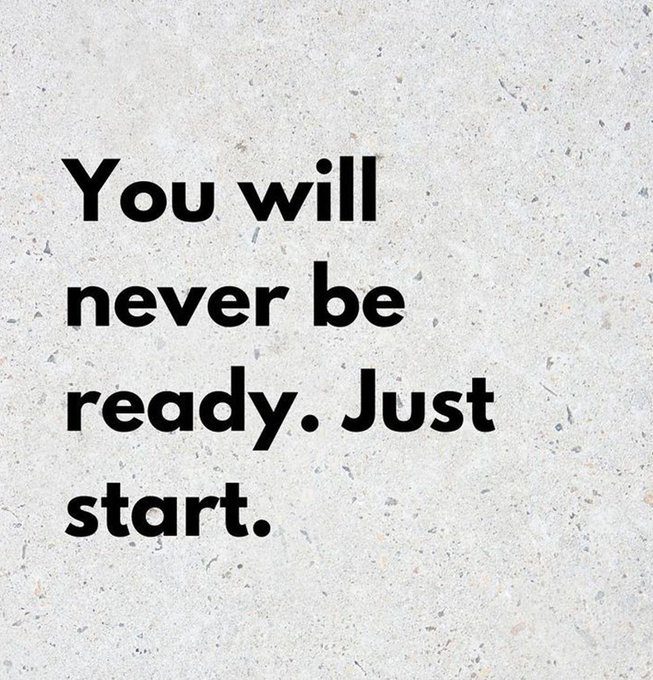Hi all, today I would like to share about the interesting topic, namely "Success is going from failure to failure without losing the enthusiasm" , the main reason why I choose that topic because not everyone is ready to face failure, some people try to blame a mistake to others, condition or environment, some people get angry without knowing what to do the next, in order to anticipate the worst situation, we need to lessen the distraction from other people's life and maximize the idea to make the masterpiece, as I realized something unusual recently, many people want to succeed but they don't want to taste the pain of struggle, in fact it is requirement, remember this advice: success will not change human's future, success change human's habit, in order to change human's habit, human need to adapt with the failure and willing to leave something bad from their habit, when facing failure, the key is to learn, adapt, enthusiasm and keep moving forward. Here’s a practical approach:
1. Accept It – Acknowledge that failure is a normal part of growth. Don’t let it define you.
2. Analyze the Mistake – Understand what went wrong. Was it a lack of preparation, strategy, or external factors?
3. Learn from It – Identify lessons that can help you improve next time.
4. Adjust Your Approach – Change your strategy based on what you’ve learned.
5. Stay Positive – Maintain self-belief and avoid negative self-talk.
6. Seek Support – Talk to mentors, friends, or professionals who can offer advice and encouragement.
7. Take Action Again – Don’t let fear of failure hold you back. Try again with improved strategies.
Failure isn’t the end—it’s a stepping stone to success. The most successful people in the world have failed many times but kept pushing forward.
It's natural when people want to avoid failure, as it often comes with discomfort, disappointment, and fear of judgment. However, failure is an inevitable part of life and growth. Instead of trying to avoid failure entirely (which is nearly impossible), the focus should be on minimizing risks, building resilience, and learning how to handle failure effectively when it happens. Here are some strategies to help navigate the fear of failure and reduce its impact:
1. Reframe Your Perspective on Failure
- Failure as a Teacher: View failure as a learning opportunity rather than a reflection of your worth. Every mistake or setback provides valuable lessons.
- Normalize Failure: Understand that everyone fails at some point, even the most successful people. It’s a universal experience, not a personal flaw.
2. Set Realistic Expectations
- Break Goals into Smaller Steps: Large goals can feel overwhelming and increase the risk of failure. Break them into smaller, manageable tasks to build confidence and momentum.
- Accept Imperfection: Strive for progress, not perfection. Perfectionism often leads to fear of failure and paralysis.
3. Prepare Thoroughly
- Plan Ahead: Anticipate potential challenges and create contingency plans. Being prepared can reduce the likelihood of failure.
- Develop Skills: Invest time in learning and practicing the skills needed to succeed in your endeavors.
4. Take Calculated Risks
- Assess the Situation: Weigh the potential benefits and risks before taking action. Avoid reckless decisions, but don’t let fear stop you from taking necessary risks.
- Start Small: Test your ideas or actions in low-stakes environments before committing fully.
5. Build Resilience
- Strengthen Your Mindset: Cultivate a growth mindset by focusing on effort, learning, and improvement rather than fixed outcomes.
- Practice Self-Compassion: Be kind to yourself when things don’t go as planned. Treat yourself with the same understanding you’d offer a friend.
6. Focus on What You Can Control
- Let Go of External Factors: Recognize that some things are beyond your control, such as other people’s opinions or unexpected events.
- Concentrate on Effort: Focus on doing your best rather than obsessing over the outcome.
7. Seek Feedback and Support
- Ask for Help: Consult mentors, peers, or experts who can provide guidance and help you avoid common pitfalls.
- Learn from Others: Study how others have succeeded or failed in similar situations to gain insights.
8. Embrace a Growth-Oriented Approach
- Celebrate Effort: Acknowledge the courage it takes to try, even if the outcome isn’t perfect.
- Iterate and Improve: Use failures as feedback to refine your approach and try again.
9. Manage Fear of Judgment
- Remember: Everyone Is Focused on Themselves: Most people are too busy with their own lives to dwell on your failures.
- Surround Yourself with Supportive People: Build a network of people who encourage and uplift you, rather than criticize or judge.
10. Shift Your Focus from Failure to Growth
- Ask Yourself: “What’s the worst that can happen?” Often, the consequences of failure are not as catastrophic as they seem.
- Focus on the Journey: Enjoy the process of working toward your goals, rather than fixating solely on the outcome.
Final Thought:
While it’s natural to want to avoid failure, it’s important to recognize that failure is not the enemy—fear of failure is. By reframing failure as a natural part of growth, preparing thoroughly, and building resilience, you can reduce its impact and use it as a stepping stone toward success. Remember, the only true failure is giving up or not trying at all.









